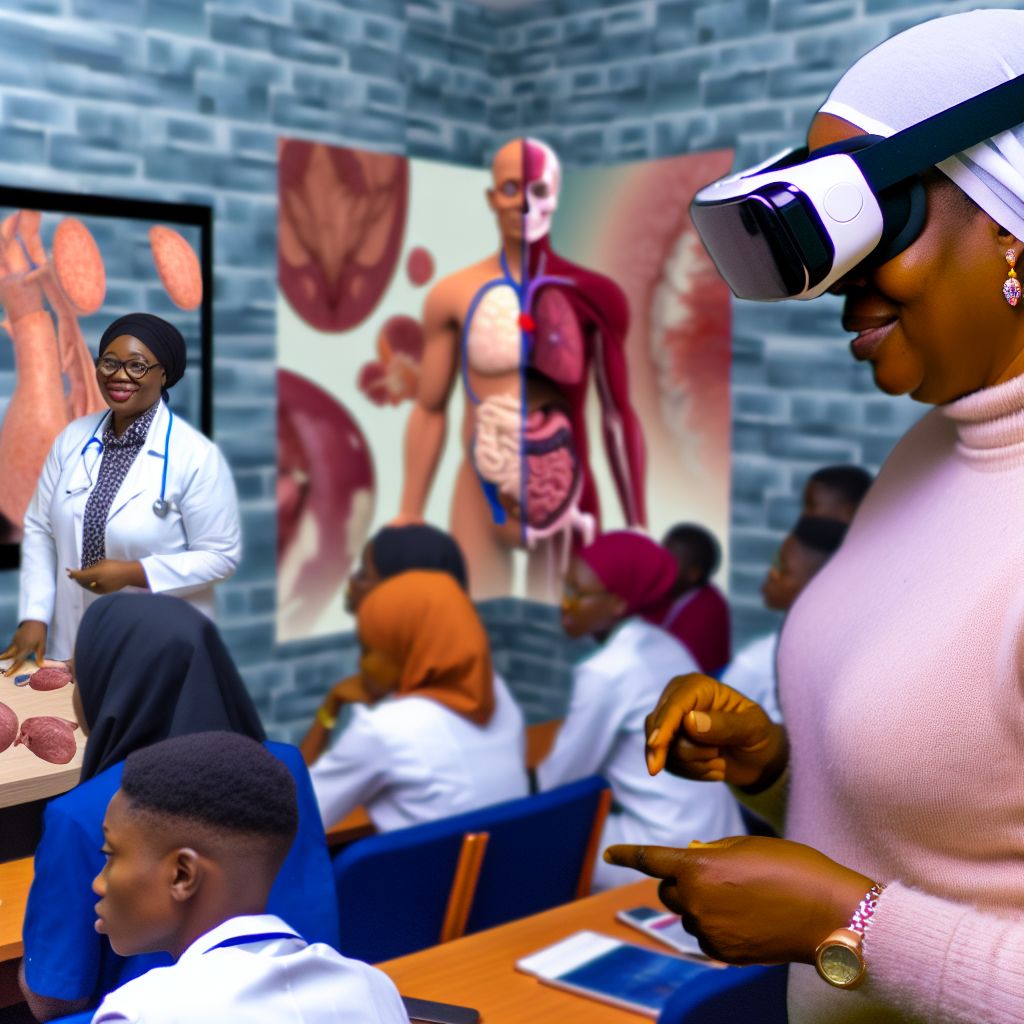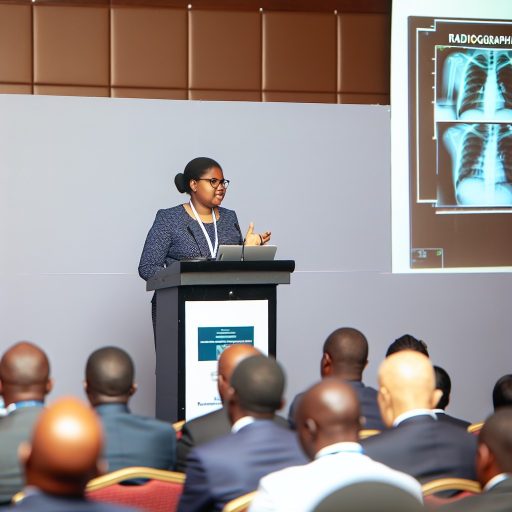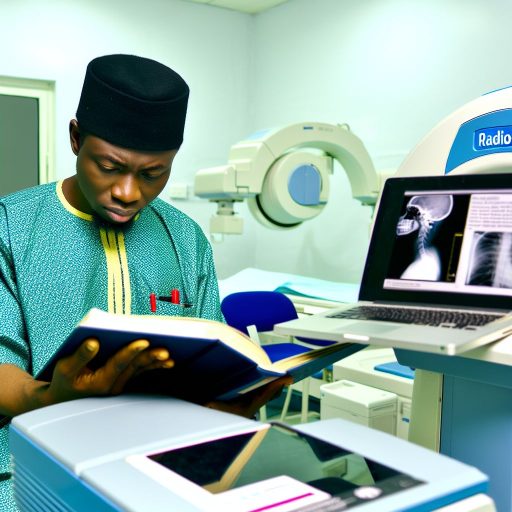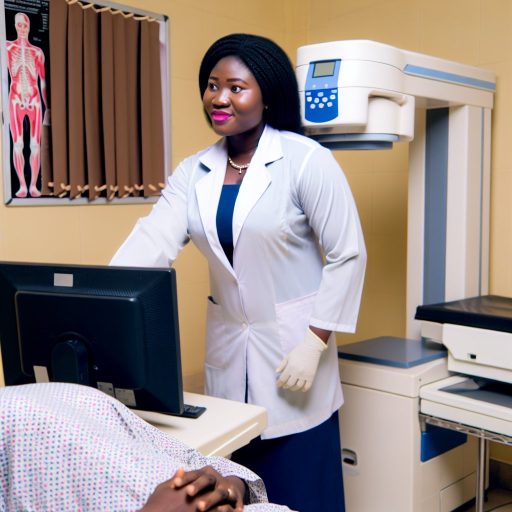Introduction:
Exploring innovative teaching methods in Nigerian medical schools is crucial for enhancing medical education.
Implementing modern approaches in teaching can significantly improve students’ learning experience and knowledge retention.
However, medical schools in Nigeria face challenges in adopting these innovative methods due to various constraints.
Use of Simulation Labs:
Simulation labs offer realistic clinical scenarios for hands-on training.
Virtual patient interactions allow students to practice critical decision-making skills.
Anatomical models provide a visual aid for better understanding of human anatomy.
High-fidelity simulators mimic real-life situations for practical skill development.
Benefits of Simulation Labs in Medical Education:
- Enhances critical thinking and problem-solving abilities.
- Improves procedural skills without risking patient safety.
- Builds confidence in handling medical emergencies.
- Prepares students for real-world clinical settings.
- Allows for repeated practice and mastery of skills.
Types of Simulations Used in Nigerian Medical Schools:
- Standardized Patient Simulations: Actors portray specific medical conditions for students to diagnose.
- Virtual Reality Simulations: Immersive technology allows students to interact in a simulated medical environment.
- Task Simulations: Practice specific skills, such as suturing or intubation, on mannequins or simulators.
- Team-based Simulations: Collaborate with peers to manage complex patient cases in a controlled setting.
How Simulation Labs Enhance Practical Learning Experiences for Students:
- Bridge the gap between theoretical knowledge and clinical practice.
- Provide a safe environment to make mistakes and learn from them.
- Foster communication and teamwork skills among future healthcare professionals.
- Increase retention and transfer of knowledge through hands-on experience.
- Encourage lifelong learning and continuous improvement in patient care.
The use of simulation labs in Nigerian medical schools revolutionizes the way students learn and prepare for their future careers.
By offering realistic scenarios, diverse simulation types, and enhancing practical learning experiences, these innovative teaching methods contribute to the overall excellence of medical education in the country.
Problem-Based Learning (PBL):
Problem-Based Learning (PBL) is an innovative teaching method that focuses on real-world scenarios.
PBL encourages students to work collaboratively on solving complex, open-ended problems.
In Nigerian medical schools, PBL is being used to train students in clinical reasoning and decision-making.
Students are presented with patient cases and tasked with identifying the underlying medical issues.
They must conduct research, analyze data, and propose treatment plans based on evidence-based medicine.
PBL promotes active learning, self-directed study, and effective communication skills among students.
Through small group discussions and peer interactions, students learn to think critically and creatively.
Examples of PBL Implementation in Nigerian Medical Schools:
- At the University of Lagos College of Medicine, students engage in PBL sessions twice a week.
- Each session is facilitated by a medical expert who guides students through the problem-solving process.
- Students at Ahmadu Bello University Medical School use PBL to apply theoretical knowledge to practical cases.
- Through role-playing exercises, they simulate patient consultations and develop diagnostic skills.
Effectiveness of PBL in Improving Critical Thinking Skills:
- Research has shown that PBL enhances students’ critical thinking abilities and problem-solving skills.
- By actively engaging with clinical cases, students develop a deeper understanding of medical concepts.
- PBL promotes lifelong learning and prepares students for the challenges of a dynamic healthcare system.
- Medical graduates who have undergone PBL training are better equipped to adapt to new clinical situations.
- PBL fosters a student-centered approach to learning and encourages continuous professional development.
Uncover the Details: Parasite Control Programs in Nigeria
Technology Integration:
Exploring the use of technology in medical education has been a game-changer in Nigerian medical schools.
The innovative tools and resources being utilized in these institutions have revolutionized the teaching and learning experiences for both students and instructors.
Here are some of the ways technology integration is benefiting medical education in Nigerian schools:
- Virtual Reality (VR) Simulations:
- Online Learning Platforms:
- Medical Apps:
- Telemedicine:
- 3D Printing:
- Simulation Labs:
- Augmented Reality (AR):
- Data Analytics:
Overall, these integrations are reshaping the way students learn and acquire medical knowledge.
By embracing innovative tools and resources, these institutions are preparing future healthcare professionals to succeed in a rapidly evolving healthcare landscape.
Find Out More: Tips for Children’s Dental Care in Nigeria
Team-Based Learning (TBL)
Definition and Significance: Team-based learning (TBL) is a collaborative learning method that emphasizes small group learning.
In medical education, TBL promotes active engagement, problem-solving skills, and critical thinking.
Incorporation into Nigerian Medical Schools: Nigerian medical schools are adopting TBL as a teaching strategy across various disciplines.
TBL sessions are structured to encourage teamwork, discussion, and problem-solving among students.
Impact on Collaboration and Communication Skills: TBL has a significant impact on enhancing collaboration and communication skills among medical students.
By working in teams, students learn to listen to diverse perspectives, communicate effectively, and develop leadership skills.
Evaluation of TBL Implementation: The implementation of TBL in Nigerian medical schools has shown positive outcomes in terms of improved teamwork, critical thinking, and problem-solving abilities among students.
It fosters a collaborative learning environment that prepares students for real-world healthcare settings.
Benefits of TBL in Medical Education:
- Enhances critical thinking skills through active engagement in problem-solving activities.
- Promotes teamwork and collaboration among students from diverse backgrounds.
- Encourages peer learning and exchange of ideas to deepen understanding of complex medical concepts.
- Fosters communication skills through interactive discussions and group presentations.
- Develops leadership abilities as students take on different roles within their teams.
Challenges and Considerations:
- Ensuring equal participation among team members to avoid dominance by certain individuals.
- Providing adequate training for faculty members to effectively facilitate TBL sessions.
- Managing large class sizes and ensuring that all students actively engage in the learning process.
- Evaluating the individual contributions of students within a team-based environment.
Future Directions for TBL in Nigerian Medical Schools:
As TBL continues to gain popularity in Nigerian medical education, there is a need to further evaluate its impact on student learning outcomes and clinical practice.
Addressing challenges related to implementation and scalability will be crucial in maximizing the benefits of TBL for medical students.
Delve into the Subject: Physiotherapy for Post-Surgery Recovery in Nigeria

Case-Based Learning
- Introducing the concept of case-based learning in medical education
- Illustrating how case-based learning is implemented in Nigerian medical schools
- Discussing the benefits of using real-life cases to teach medical students
Introduction to Case-Based Learning
Case-based learning is a teaching method that involves presenting students with real-life scenarios or cases.
This approach allows students to apply their theoretical knowledge to practical situations, encouraging critical thinking and problem-solving skills.
Transform Your Career with Expert Guidance
Get personalized mentorship consulting that’s tailored to your unique path. Our expert advice is actionable and exclusive.
Get StartedImplementation of Case-Based Learning in Nigerian Medical Schools
In Nigerian medical schools, case-based learning is often integrated into the curriculum through small group discussions.
These discussions revolve around patient cases, where students analyze symptoms, order tests, and make treatment decisions based on the information provided.
The cases presented in this format are typically complex and multifaceted, requiring students to consider various factors before arriving at a diagnosis or treatment plan.
This hands-on approach helps students develop clinical reasoning skills and prepares them for real-world medical practice.
Benefits of Using Real-Life Cases to Teach Medical Students
One of the main advantages of case-based learning is its ability to bridge the gap between theory and practice.
By working through actual patient scenarios, students gain a deeper understanding of how different medical concepts apply in clinical settings.
Furthermore, case-based learning promotes active engagement and collaboration among students.
By working together to solve problems, students learn from each other’s perspectives and experiences, enhancing their communication and teamwork skills.
Additionally, this method allows students to experience the uncertainty and complexity of real-world healthcare.
It prepares them for the challenges they will face as future medical professionals.
It also fosters a sense of empathy and patient-centered care, as students learn to consider the holistic needs of patients beyond just their medical conditions.
Case-based learning is an effective and innovative teaching method that enriches the educational experience of medical students in Nigerian medical schools.
By incorporating real-life cases into the curriculum, educators can better prepare students for the complexities of modern healthcare practice.
Uncover the Details: Impact of Sugary Foods on Nigerian Kids’ Teeth
Flipped Classroom Approach:
Explaining the flipped classroom model in medical education involves reversing the traditional teaching method.
It requires students to review lecture materials at home and engage in interactive activities during class time.
This approach promotes active learning, critical thinking, and self-directed learning.
Advantages of Flipped Classroom in Medical Education:
- Enhances student engagement and participation in class discussions.
- Facilitates deeper understanding of complex medical concepts through interactive activities.
- Promotes collaborative learning among students, fostering a sense of community.
- Allows faculty to provide personalized feedback and guidance to individual students.
Examples of Flipped Classroom Adoption in Nigerian Medical Schools:
- Obafemi Awolowo University College of Health Sciences utilizes pre-recorded lectures for students to prepare.
- University of Lagos Medical School incorporates online quizzes and group discussions during class time.
- Ahmadu Bello University Medical College uses case studies and problem-solving exercises in flipped classroom sessions.
Impact of Flipped Classroom on Student Engagement and Knowledge Retention:
The flipped classroom approach has shown significant benefits in promoting student engagement and knowledge retention.
Students are more actively involved in their learning process, leading to better understanding of medical concepts.
Interactive activities during class time enhance information retention and application in clinical settings.
This approach in Nigerian medical schools has positively impacted student learning outcomes.
Innovative Teaching Methods in Nigerian Medical Schools
Innovative teaching methods in Nigerian medical schools are essential for enhancing the learning experience of students.
These methods help to engage students, promote critical thinking, and improve retention of information.
By incorporating innovative approaches, medical schools can better prepare future healthcare professionals for the challenges they will face.
It is important to continue investing in professional development and resources to support these methods in medical education.
Implementing a blended learning approach can further enhance innovative teaching practices.
Integrating technology into the curriculum is another crucial step.
Fostering a culture of collaboration among faculty can also improve teaching quality.
Innovation is key to staying current with advancements in healthcare.
Ensuring that medical education remains relevant and effective is vital for student success.
By embracing new teaching methods, Nigerian medical schools can continuously improve educational quality.
Ultimately, this will contribute to better healthcare outcomes in the country.
Additional Resources
Archive: Medical Education Partnership Initiative (MEPI) Directory of …
Sylvester Hosts University Delegation from Northeast Nigeria …




